CoL Centre 2020 Students
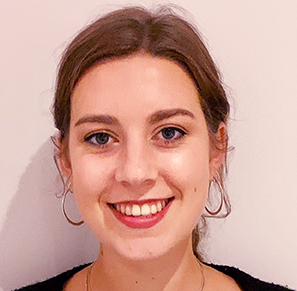
Mabel Baxter Dalrymple
CoL Centre PhD Student
King’s College London
I have just graduated from the University of Manchester with a BSc in Medical Biochemistry with Industrial Experience, during which I worked with Panagiotis Anastasiadis’ Cell Adhesion and Metastasis Lab in the Cancer Research Department at the Mayo Clinic in Florida.
My PhD is supervised by Maddy Parsons at the Randall Centre for Molecular and Cellular Biophysics at King’s College London, with secondary supervision from John Marshall at Barts Cancer Institute. My project aims to investigate the regulation of nuclear F-actin and its function in controlling cancer cell survival and invasion. With previously established roles in DNA damage response, chromatin organisation and transcriptional regulation, we wish to better understand how nuclear F-actin is regulated by binding partners and signalling pathways, particularly in the context of cancer cell survival and metastatic tendencies. We aim to identify the contribution and mechanistic actions of druggable targets that mediate nuclear actin levels through advanced imaging and analysis techniques in both 2D and 3D culture conditions of breast cancer.

Pablo Romero Clavijo
CoL Centre PhD Student
King’s College London
I obtained my BSc in Biochemistry and Molecular Biology from the Basque Country University (Spain) in May 2018. My bachelor’s thesis was focused on structure-based drug design and crystallography, aiming to design beneficial and unveiling harmful medically relevant inhibitors of human copper amine oxidases. In October 2019, I graduated with a MSc in Experimental Pharmacology and Therapeutics at University College London. First as a Masters student and then as a Research Assistant, I had the opportunity to join Julian Downward’s Lab at the Francis Crick Institute for a project focused on developing lung cancer therapies that could be used in the clinic, with a particular interest on mutant-specific KRAS-G12C inhibitors.
Currently, I am PhD candidate at the St John’s Institute of Dermatology funded by the Cancer Research UK City of London Programme, and supervised by Prof. Sophia Karagianis (KCL) and Prof. Julian Downw ard (The Francis Crick Institute). My project is focused on developing antibody-drug conjugates for the treatment of solid tumours, using CSPG4 as a therapeutical marker for melanoma.
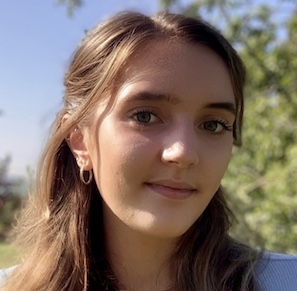
Rhona Millar
CoL Centre PhD Student
UCL
This summer I was awarded my MSci in Immunology from the University of Glasgow. During my undergraduate degree I had the opportunity to undertake a year’s work placement in Dr Seth Coffelt’s lab at the CRUK Beatson Institute in Glasgow. Here I worked on a pro-tumour signalling pathway in models of Triple Negative Breast Cancer. This was a fantastic year for me and my time at the Beatson really sparked my interest in the role of the immune system in cancer development, progression and therapy.
During my PhD I will primarily be based at the UCL Cancer Institute in Dr Crispin Hiley’s lab. I will also have the opportunity to work at the Francis Crick Institute with Dr Simon Boulton as my secondary supervisor. My research project will focus on the effects of radiotherapy on immune responses in lung cancer patients. I hope my PhD will increase our understanding of such responses and point to how the immune system can be manipulated to improve the outcomes of patients treated with radiotherapy.
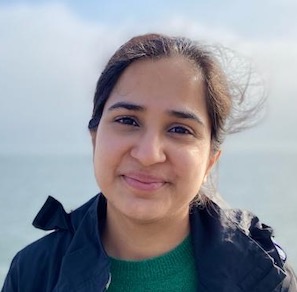
Farah Alam
RadNet PhD Student
UCL
I obtained my BSc. in Biomedical Sciences at Queen Mary University of London, followed by an MSc. in Immunology at Imperial College London. I had then decided to work in industry for two years, which allowed me to develop a strong interest in cancer immunotherapies through working on bispecific antibodies for immuno-oncology use.
My PhD research will be focused on image-guided targeting of Neuroblastoma. There will be a focus on using preclinical disease models, and syngeneic tumour models to understand how radiotherapy may impact T cells in penetrating the tumour core.
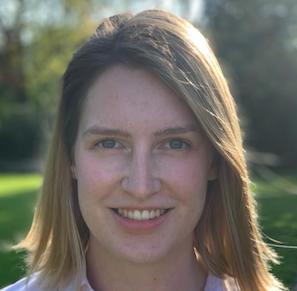
Kerstin Thol
RadNet PhD Student
UCL
My PhD project will be led by Nicky McGranahan and Crispin Hiley at the UCL Cancer Institute. The project will focus on the impact of genomic instability and error prone DNA repair on radiation resistance in non-small cell lung cancer. Some of the questions I will investigate are whether patients who have received radiotherapy show greater chromosomal instability and whether radiotherapy leads to evolutionary bottlenecking and a restriction in clonal diversity.
I obtained my BSc in Industrial Biotechnology at the University of Applied Sciences Bremen (Germany). Afterwards, I had the opportunity to work as a trainee in the lab of Johanna Ivaska at Turku BioScience, Finland where I became interested in cancer biology. This motivated me to study for a MRes in Cancer Bioinformatics at Imperial College London. During this time, I worked on a research project studying genomic tumour heterogeneity in ovarian cancer led by Paula Cunnea at Imperial College and on a second project focussing on tumour-stroma crosstalk in ovarian cancer led by Yinyin Yuan at the Institute of Cancer Research.
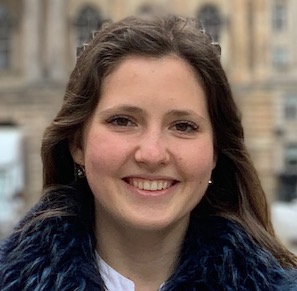
Nezka Zupan
RadNet PhD Student
UCL
I obtained my BSc in Bioscience with Biomedical Sciences in Aberdeen. During my honours project in Massimiliano Mazzone’s lab at VIB KU Leuven, where my research was focused on Treg metabolism, I developed a strong interest in cancer biology.
During my PhD, I will be based at the UCL Cancer Institute and Medical Physics and Bioengineering Department, led by Maria Hawkins, my primary supervisor and Ivana Bjedov as my secondary supervisor. My doctoral research is trying to establish universality of rapamycin mediated radioprotection/mitigation in different cancers and stages of disease, as well as to explore the role of senescence in both normal tissue and tumour resistance to radiation. Additionally, I am evaluating rapamycin’s effect on genome stability upon irradiation, which will help to further elucidate the rapamycin-mediated radioprotection mechanism from mutation signature analyses.

Patrycja Lewandowska
RadNet PhD Student
UCL
I am a PhD student working under the supervision of Dr Martin Pule and Dr Claire Roddie at the University College London. My project focuses on the investigation of the effects of short-term and long-term local radiotherapy in the context of the tumor microenvironment and CAR-T cell immunotherapy resistance in relapsed/refractory diffuse large B-cell lymphoma (DLBCL) patients. The aim is to determine whether local radiation of DLBCL bulky deposits leads to cancer cell resistance to CAR-T cell activity over time.
I hold a master’s degree in Biochemistry and Molecular Biology from the University of Lodz (Poland). Before joining UCL, I worked as a visiting graduate research assistant in Prof. Marty Mayo’s lab at the University of Virginia in Charlottesville (USA), where I gained valuable experience in cancer biology and developed a strong interest in novel cancer therapeutic strategies that may improve the clinical outcomes and overcome therapy resistance in patients.
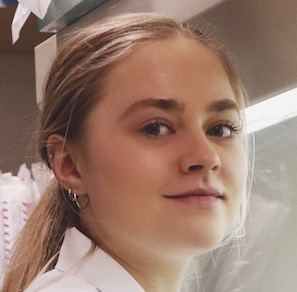
Rebecca Drake
RadNet PhD Student
Queen Mary University of London
I am a PhD student on the CRUK City of London Centre RadNet 2020 programme and my research is trying to enhance sensitisation to radiotherapy in non-small cell lung cancer. I am investing the mechanisms of resistance to radiotherapy treatment within the tumour microenvironment, with focus on angiocrine signalling. During my PhD, I will be based between labs at the Francis Crick Institute and the Barts Cancer Institute (BCI), Queen Mary University of London. I am excited to be leading the collaboration between my primary supervisor, Prof Kairbaan Hodivala-Dilke (BCI) who researches angiogenesis in the tumour microenvironment and my secondary supervisor, Dr Simon Boulton (Crick) investigating DNA damage/repair in cancer and its treatments.
I obtained my BSc in Medical Sciences from the University of Exeter Medical School in 2019, where I developed a strong interest in Neuroscience and Cancer. In my third year I took an optional placement year abroad in Boston, where I was a Harvard student intern at Massachusetts General Hospital working in a lab researching Schwannomatosis and Neurofibromatosis, both tumour predisposition syndromes. It was my PI, Dr James Walker, who really inspired me to pursue a career in scientific research, showing me how collaborative, reactive and creative working in a lab could be. In the final year of my BSc, I completed a project looking at the interactions between normal and cancer cells in the early tumour microenvironment and really enjoyed working in cell culture again and designing my own experiments.
After graduating from Exeter, I started my MSc at the Institute of Child Health, UCL in Personalised Medicine and Novel Therapies. I have really enjoyed improving my bioinformatics skills and understanding more about the role of multi-omics in disease and medicine. My MSc thesis looked at the pathological role of autophagy in brittle bone disease and in the mechanisms of treatment with mesenchymal stem cells, through analysis of the transcriptomic changes in osteoblasts.
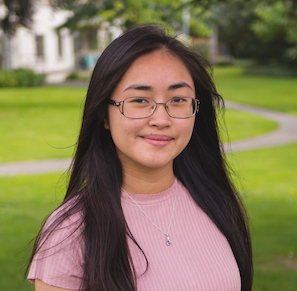
Rhyla Mae Santiago
RadNet PhD Student
UCL
I obtained a BSc in Human Health and Disease from Trinity College Dublin where I completed a research project investigating the role of cancer stem cells (CSCs) in lung cancer chemoresistance in Dr. Martin Barr’s lab. Afterwards I became a research assistant for Dr. Mark Robinson at Maynooth University where I investigated the role of natural killer cells in radio-resistance in oesophageal cancer. These experiences inspired my passion for investigating the role of CSCs in cancer therapy resistance.
My PhD research will be focused on understanding the role of glioma stem cells (GSCs) in glioblastoma (GBM) radio-resistance. My primary supervisor will be Dr. Simona Parrinello (UCL) and I will be co-supervised by Dr. Simon Boulton (Francis Crick Institute). GBM is the most common type of brain tumour, with a median survival of less than 15 months due to therapy resistance. Evidence shows that GSCs contribute to radio- resistance, thus my project aims to understand how GSCs respond to radiation therapy and the molecular mechanisms involved.
My hope for this research is to improve our understanding of how GSCs contribute to radio-resistance so that we can more effectively target GSCs and improve therapeutic outcomes for patients.
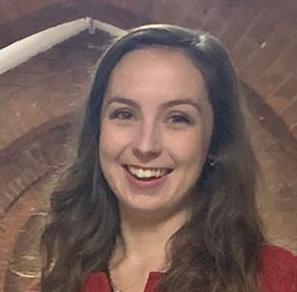
Sophie Langdon
RadNet PhD Student
King’s College London
I am a PhD student on the City of London RadNet Program based between St Thomas’s Hospital (King’s College London, KCL) and the University College London Cancer Centre (UCL). During my PhD I will be working under the supervision of Dr Samantha Terry (KCL) and Dr Tammy Kalber (UCL) to examine combinations of precision radiotherapy with immunotherapy for the treatment of head and neck cancers. As irradiation has been shown to upregulate PD-L1 expression in the tumour microenvironment, specifically on dendritic cells, macrophages and tumour cells, my project will focus on examining combinations of radiotherapy with anti-PD-L1 based immunotherapies.
I hold an MSci in Biological Sciences with a years Professional Placement from the University of Birmingham. During my placement year I worked at AstraZeneca on their mTOR and PI3K inhibitor immunooncology projects, sparking my interest in the immune system and cancer. From there I returned to University to work in Professor Martin Hewisons lab for my master’s project, examining the effect of vitamin D on CD4+ T cells. Since graduating I have worked for Artios Pharma, a Biotech specialising in DNA Damage Response therapies, where I contributed to many of their pre-clinical projects.
I am excited to be part of the CoL RadNet Program and look forward to taking part in all it has to offer.
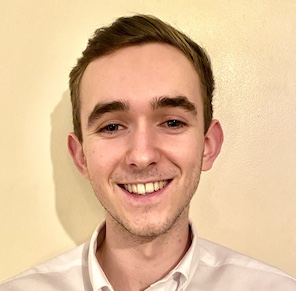
Callum Nattress
MBPhD Student
UCL
I am a medical student on the MBPhD programme at UCL and I am based at UCL Cancer Institute within the Cell Communication Laboratory led by my primary supervisor, Dr Chris Tape. I am also working at the UCL Great Ormond Street Institute of Child Health under my secondary supervisor, Dr Jon Fisher.The objective of my PhD is to explore human γδ T cells engineered against carcinoembryonic antigen (CEA) as a novel biotherapeutic for colorectal cancer (CRC). I am using cytometry time-of-flight (CyTOF) to perform 126-plex multivariate experiments on patient-derived CRC organoids (PDOs) co-cultured with various combinations of colonic fibroblasts, cancer-associated fibroblasts, macrophages and anti-CEA γδ T cells. This will allow the characterisation of how anti-CEA γδ T cells kill CRC PDOs and to what extent this killing is regulated by constituents of the tumour microenvironment co-cultures. Furthermore, I will also be using this custom CyTOF platform to investigate how various therapies currently in the clinic modulate anti-CEA γδ T cell activity, with the intention of improving anti-PDO efficacy.
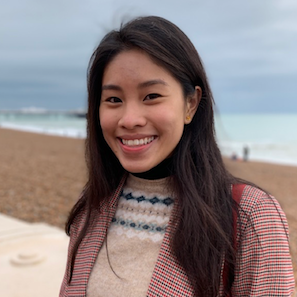
Claudia Lee
MBPhD Student
Francis Crick Institute
I am a MB-PhD student in the Cancer Evolution and Genome Instability Laboratory at the Francis Crick Institute. My research is focused on exploring the immune microenvironment of non-small cell lung cancer (NSCLC) in relation to immune-oncology (IO) therapy response. With imaging technologies and data from the TRACERx cohort study, I hope to characterise the spatial context of immune cells at the single cell level. This would enable us to better understand why IO therapies vary in efficacy in different patients and ultimately predict successful response to IO therapy in patients with NSCLC. Prior to starting my PhD, I was part way through my medical training at UCL Medical School and have completed an intercalated degree in Mathematics, Computers and Medicine.
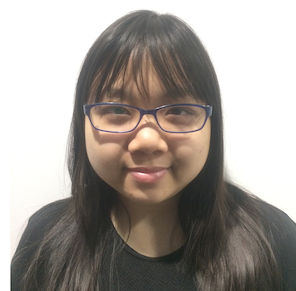
Tricia Lim
MBPhD Student
UCL
I am a UCL MBPhD student interested in pursuing a career as a clinician scientist. Prior to my PhD, I did an intercalated Bachelor of Science degree in Medical Sciences with Clinical Sciences and obtained first class honours. I will be undertaking my PhD under the supervision of Professor Henning Walczak and Professor Bart Vanhaesebroeck at UCL Cancer Institute. My PhD project will look at death receptors and ubiquitin in inflammation and cell death associated with cancer.
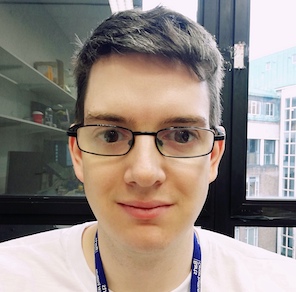
Edward Poynton
Clinical Research Training Fellow
Queen Mary University of London
I am a clinical research fellow in Jessica Okosun’s lab at the Barts Cancer Institute. I completed a degree in biochemistry before studying medicine as a postgraduate student. I am currently completing my specialist training in haematology at University College Hospital. My research interest is in primary CNS lymphoma (PCNSL) which is sub type of lymphoma with a poor prognosis. There is an unmet need to identify biomarkers of predictive and prognostic value and to better understand the links between molecular phenotypes and clinical behaviour in these tumours.
My project has 3 key aims:
- Determine the molecular profiles of good- and poor-risk PCNSL
- Assess if tumour-specific mutations can be tracked in peripheral blood and cerebrospinal fluid
- Spatially map the immune microenvironment of PCNSL tumours
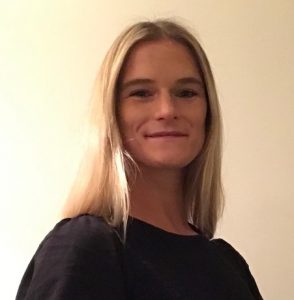
Elizabeth Harvey-Jones
Clinical Research Training Fellow
King’s College London
I am a Clinical Research Training Fellow in Professor Andrew Tutt’s group based at King’s College London and the Institute of Cancer Research. My translational research utilises a longitudinally profiled breast cancer cohort with defects in homologous recombination and focuses on understanding mechanisms of resistance to DNA damaging agents such as platinum based chemotherapy and small molecular poly-ADP ribose inhibitors receiving treatment in the clinic.
I am a clinical oncology trainee, prior to this I completed a cancer biology Batchelor of Science at Bristol University and my research focussed on the regulation of cancer stem cells
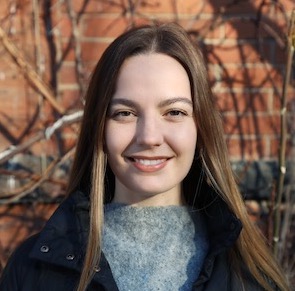
Sonya Hessey
Clinical Research Training Fellow
UCL
I am a Clinical Research Training Fellow in Dr Mariam Jamal-Hanjani’s group based at the UCL Cancer Institute. My research integrates tumour genomics with the tumour microenvironment in order to study mechanisms of resistance to immunotherapy in Non-Small Cell Lung Cancer (NSCLC). I am particularly interested in how these mechanisms evolve through treatment and from early to late stage disease.
I am a Medical Oncology trainee and I have previously held NIHR academic foundation and clinical fellowships. Prior to my clinical training I completed a Masters of Research at Kings College London.
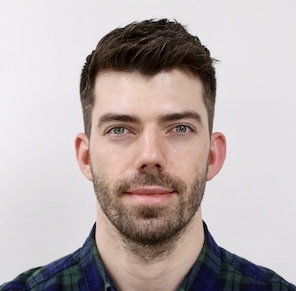
Steven Nottley
Clinical Research Training Fellow
UCL
I am a ST5 Histopathology trainee in Glasgow with an interest in sarcoma. I initially studied for a BSc (Hons) in Molecular Medicine at Sussex University before studying Medicine at Cambridge University. I am now a clinical research fellow in the Sarcoma Biology and Genomics lab at the UCL Cancer Institute. My primary supervisor is Dr Nischalan Pillay (UCL Cancer Institute) and my secondary supervisor is Dr Peter Van Loo (The Francis Crick Institute). My research will be exploring the various mechanisms of radiotherapy resistance in soft tissue sarcoma. I hope to use this fellowship as an opportunity to become a clinician scientist to combine a diagnostic and research career.
